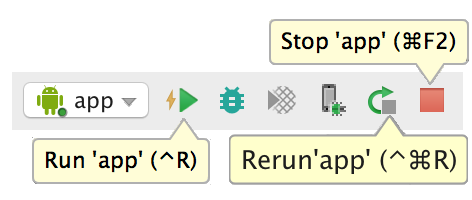
The last time Google released features for Android Studio 2.0 in beta, the goal was to improve the overall app development experience. With the stable version of Android Studio 2.0, Google hopes these new features will help developers create better apps, leading to a faster workflow for them.
Some major features that were announced yesterday in Android Studio 2.0 include the new Android Emulator, which is 3x faster than Android Studio’s previous emulator, according to Android product manager Jamal Eason in a blog post.
The Android Emulator also comes with Android debugger enhancements, so developers are now able to push apps and data faster to the emulator than to a physical device. The emulator also comes with Google Play Services for testing on API functionality, as well as other features to manage calls, battery, network and GPS, according to the blog.
(Related: Android N adds features for developers)
Another major change is to Instant Run, which is a command that reduces the time to update an app. It allows developers to make changes that will appear live in a running app, and it can push updated code to connected devices or emulators by performing a hot swap, warm swap or cold swap. Eason said Instant Run automatically determines the type of swap to perform based on what change the developer made.
Instant Run will inject code changes into a running app process, which avoids redeployment and reinstallation to the Android Package Kit. “For some types of changes, an activity or app restart is required, but your edit, build and run cycles should still be generally much faster than before,” wrote Eason.
A new service, called the Cloud Test Lab, allows testing an app over a variety of devices. After testing with the emulator or on an Android device, the Cloud Test Lab is a way to run through a collection of tests against a portfolio of physical devices that are hosted in Google’s data centers, wrote Eason. And Cloud Test Lab can perform sets of tests to make sure an app does not crash.
App Indexing is also included in this release, designed to help users find an app in Google Search with the App Indexing API. Eason wrote that Android Studio 2.0 will help a developer create a correct URL structure in the app’s code, which will add attributes in the AndroidManifest.xml file that will work the Google App Indexing service.
Along with the new features to Android Studio 2.0, there is a new Twitter account so developers can directly tweet to the team and share what they think about their experiences with Android Studio 2.0.






